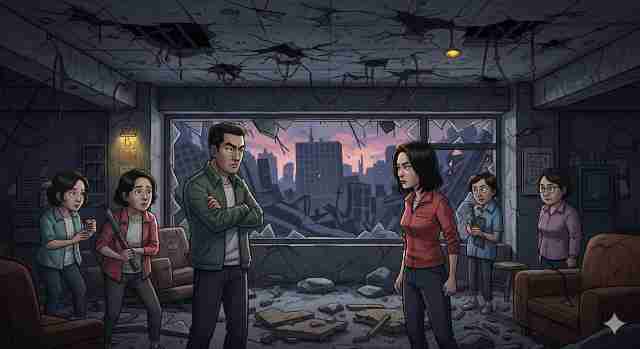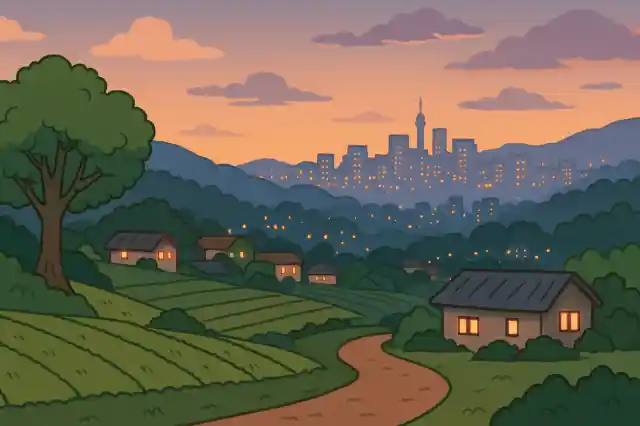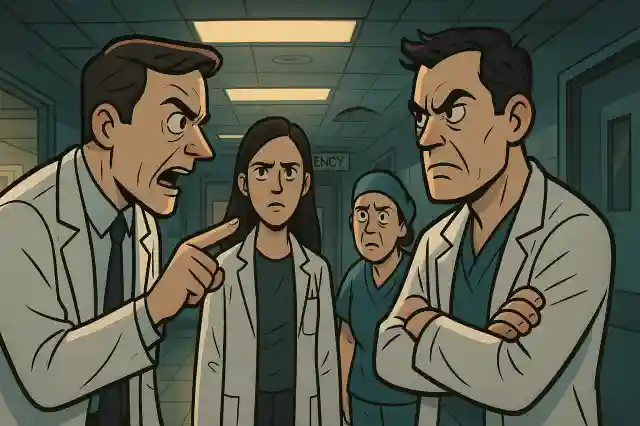Concrete Utopia: A Standout Korean Disaster Drama Resonating Worldwide
Exploring the Depths of Concrete Utopia: A Korean Disaster Drama
Concrete Utopia, a 2023 South Korean disaster-thriller directed by Um Tae-hwa and starring Lee Byung-hun, Park Seo-joon, and Park Bo-young, has captivated global audiences with its unique blend of suspense, societal commentary, and gripping human drama. As the story unfolds in a post-apocalyptic Seoul, it raises important questions about survival, morality, and human nature.
Concrete Utopia has emerged as a must-watch for anyone seeking a blend of suspense, societal commentary, and gripping human drama. Its story, performances, and themes have sparked widespread discussion, making it a top recommendation for English-speaking viewers interested in Korean content.
Key Takeaways
- Genre-defining Approach: Concrete Utopia prioritizes character-driven storytelling, heightening tension and focusing attention on group dynamics under extreme stress.
- Social Commentary: The film serves as an allegory for contemporary anxieties, examining how ordinary people respond to crisis and scarcity.
- Outstanding Performances: Lee Byung-hun’s portrayal of Yeong-tak anchors the film’s moral ambiguity, while Park Bo-young and Park Seo-joon deliver nuanced performances.
Table of Contents
- The Story: Survival, Morality, and Human Nature
- Why Concrete Utopia Stands Out
- Key Themes and Talking Points
- Notable Plot Developments
- Global Impact and Viewer Engagement
- Actionable Insights for Viewers
- Concrete Utopia’s Place in the K-Drama Landscape
The Story: Survival, Morality, and Human Nature
Concrete Utopia unfolds in Seoul after a catastrophic earthquake leaves the city in ruins, with only one apartment complex—Imperial Palace Apartments—miraculously intact. The residents, now isolated from the devastated world outside, must navigate the harsh realities of survival. As news of their haven spreads, outsiders flock to the apartments, seeking refuge. Under the leadership of Yeong-tak (Lee Byung-hun), the residents establish new rules to protect themselves, barring entry to non-residents and creating a tense, insular community.
The film’s focus shifts away from the disaster itself, using the earthquake as a backdrop to explore tribalism, authoritarianism, and moral compromise. The narrative centers on the psychological and ethical dilemmas faced by the residents, particularly through the perspectives of Min-sung (Park Seo-joon), Myung-hwa (Park Bo-young), and Yeong-tak. The trio’s evolving relationships and choices drive the film’s suspense and emotional impact.
Why Concrete Utopia Stands Out
Concrete Utopia stands out for its genre-defining approach, prioritizing character-driven storytelling and heightening tension within the apartment complex. The film serves as a powerful allegory for contemporary anxieties, examining how ordinary people respond to crisis and scarcity.
- Genre-defining Approach: Unlike typical disaster movies, Concrete Utopia focuses on character-driven storytelling.
- Social Commentary: The film explores tribalism, authoritarianism, and moral compromise, resonating strongly with Gen Z and millennial audiences worldwide.
- Outstanding Performances: Lee Byung-hun, Park Seo-joon, and Park Bo-young deliver nuanced performances, embodying the struggle between empathy and survival instincts.
Key Themes and Talking Points
Concrete Utopia explores several key themes, including tribalism and exclusion, leadership and power, and empathy vs. survival. The residents’ decision to keep outsiders away sparks intense debate, both within the film and among viewers.
- Tribalism and Exclusion: The struggle to balance self-preservation with compassion forms the heart of the story.
- Leadership and Power: Yeong-tak’s rise and eventual unraveling as leader illustrate how authority can be both a force for order and a source of moral decay.
- Empathy vs. Survival: Myung-hwa’s insistence on helping outsiders, even at great personal risk, highlights the enduring tension between empathy and the instinct to survive.
Notable Plot Developments
The arrival of Hye-won, a young girl separated from her mother, disrupts the fragile order established by Yeong-tak. Her investigation into Yeong-tak’s past exposes the dark truth behind his leadership.
Min-sung and Myung-hwa’s journey reveals the emotional and ethical costs of survival. Their choices—between loyalty to the group and compassion for outsiders—drive the film’s climax.
Global Impact and Viewer Engagement
Following its digital release, Concrete Utopia became a top summer blockbuster in South Korea and saw engagement spikes on international streaming platforms. Discussions on social media, often tagged #ConcreteUtopia, focus on the film’s moral dilemmas, character choices, and allegorical storytelling.
The film has maintained robust engagement on streaming platforms and social media, with an IMDb rating of 6.6/10 and over 8,500 user reviews.
Actionable Insights for Viewers
- Watch for the Performances: Lee Byung-hun’s and Park Bo-young’s performances are central to the film’s emotional power.
- Reflect on the Themes: The film’s exploration of community, exclusion, and moral compromise offers a lens through which to examine real-world challenges.
- Join the Conversation: Engaging with online communities discussing Concrete Utopia can deepen your appreciation of its themes and connect you with fellow fans of Korean drama and film.
Concrete Utopia’s Place in the K-Drama Landscape
Concrete Utopia marks a significant moment in the evolution of Korean drama and film. By blending genre conventions with thoughtful social commentary, it appeals to a broad, international audience and sets a new standard for disaster storytelling.
For viewers seeking a Korean drama recommendation with substance and cross-cultural appeal, Concrete Utopia stands out as an essential watch. Its relevance, performances, and thematic depth ensure it will remain a touchstone in conversations about K-content for years to come.
Check out more Korean drama recommendations on Darakroom.


